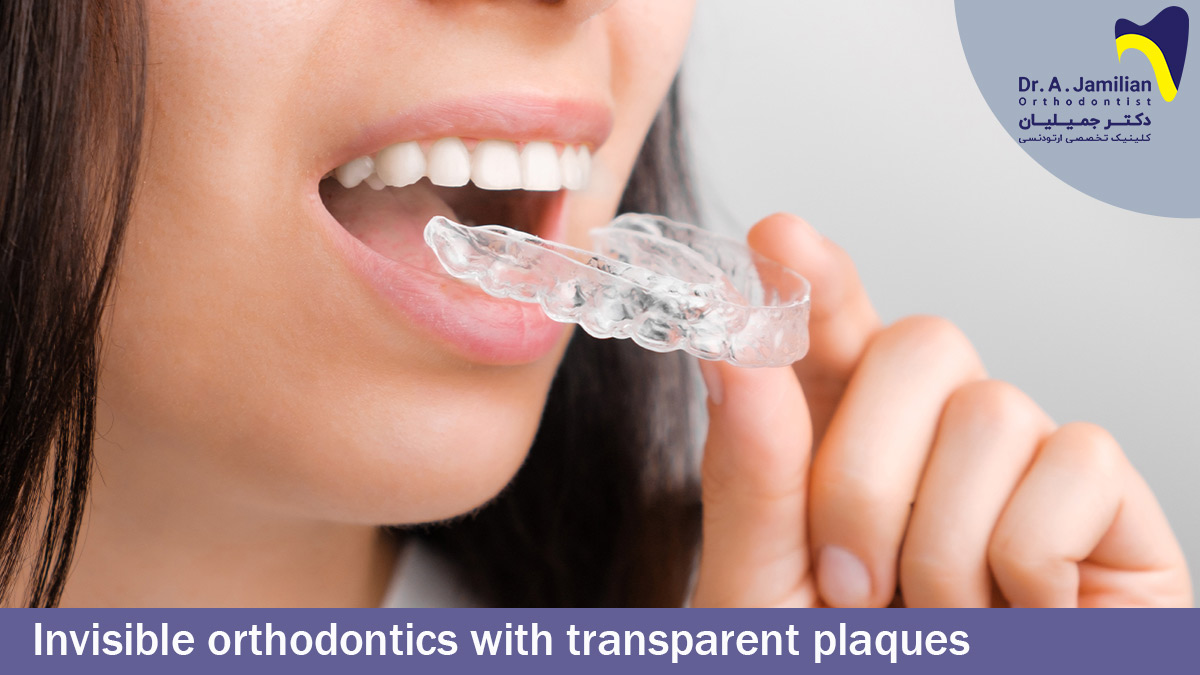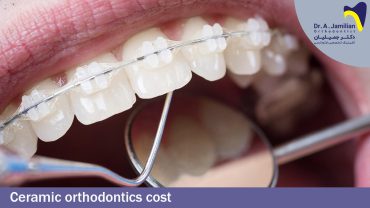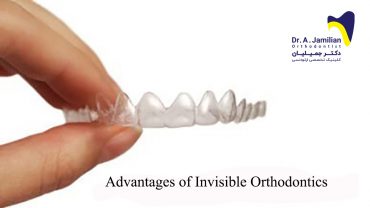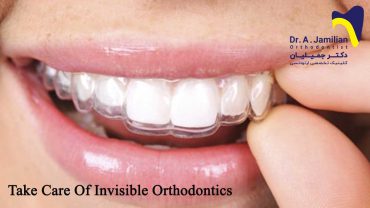Orthodontics is a specific dentistry specialty aiming to arrange and align the teeth and coordinate the jaws. In other words, orthodontics refers to teeth alignment. One of the prominent features of orthodontics is diagnosis, prevention and treatment of tooth and jaw malformations. Unlike other dental treatments, orthodontic treatment is relatively longer and lasts for about 2 to 3 years on average.
With the rapid advancement of the medical and dental sciences, especially in the field of orthodontics, there has been a tremendous change in materials and equipment used. Due to the long duration of orthodontic treatment, there has been an immense amount of change in the type of materials and equipment being used. Due to the long duration of orthodontic treatment, there has always been an increasing interest in use of invisible methods. Most adults and people with sensitive social positions who have irregular teeth and require orthodontic treatment tend to use invisible orthodontics that will not interfere with their work and social relationships. New techniques have been devised to make the orthodontic appliances invisible.
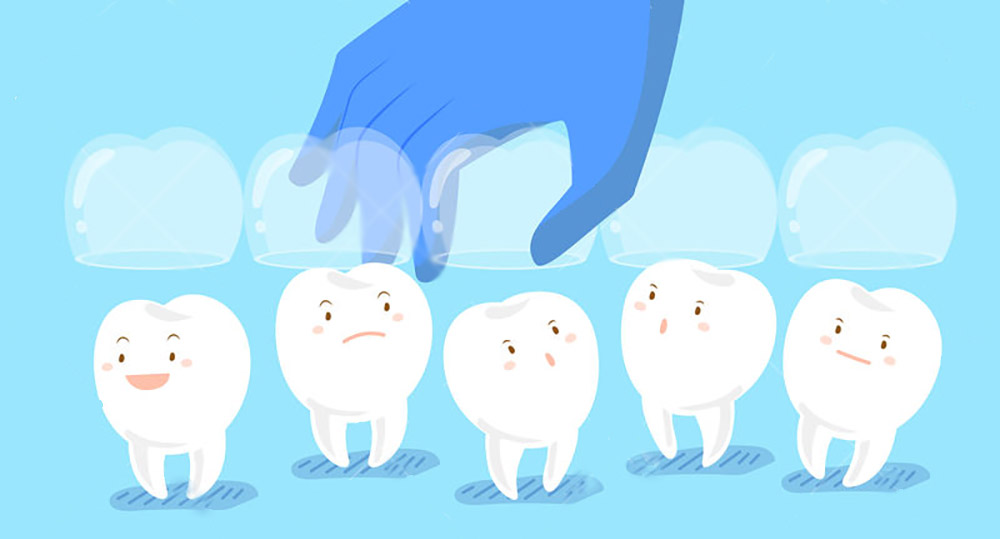
Types of orthodontic appliances
Demand for invisible treatments has grown significantly, this is caused by the ever-increasing demand for invisible orthodontic treatments, and given that these treatments can be performed at any age, . Most people are aware of dental malformations and tend to receive orthodontic treatment but are often dissatisfied with the appearance of orthodontic appliances and thus, are not interested in visible orthodontic appliances in their mouths. As of now numerous methods are available to reduce the unpleasant appearance of orthodontic appliances. The most important of which is orthodontic treatment with tooth-colored ceramic, crystal, composite brackets, clear plaques (called Invisalign), invisible orthodontics, transparent plaques / invisible plaques and lingual brackets (attached to the teeth backside).
Invisalign or invisible orthodontics or crystal clear plaques are another type of orthodontic treatment capable of effective correction of most dental problems and malformations. These appliances are similar to the transparent mica that covers the teeth. A series of invisible transparent plastic casts are being used in invisible orthodontic treatment. These transparent plaques are replaced every two weeks. Similar as removable plaques, these plaques can be removed and placed by the patient.
Invisible orthodontic technique
Invisalign or invisible orthodontics or clear plaques should be used throughout the day except for brushing. During their use, the teeth move slowly to achieve the desired results. Most adult patients who need orthodontics refuse to perform orthodontics because they do not want their brackets and wires to be seen at work. Invisalign or invisible plaques have been able to solve this problem. It is very convenient to use this system so that many people soon forget that they are using it. In this method, the orthodontic appliance is made of colorless plastic that covers the entire surface of the teeth and can be placed and removed by the patient.
How is invisible orthodontics done?
In invisible orthodontics, a transparent plastic aligner is used and gently inserted into the mouth, causing the teeth to gradually move by applying gentle pressure. This aligner should be placed in the mouth for an average of 20-22 hours a day and should be replaced every 2 weeks. The replacement is able to affect the results and is important to the treatment. Since these types of orthodontics are invisible, they don’t interfere much with your daily activities. The treatment duration in this method is 12-18 months, which can be a smart choice for people who have busy schedules. However, it should be noted that this method works faster and better for patients with mild dental crowding and is not suitable for patients with more severe disorders or patients with skeletal problems in the jaws.
Benefits of invisible orthodontics
In addition to being invisible, the invisible orthodontics has many more benefits for patients who choose this method of treatment. If you are one of these patients these devices do not come into contact with food, thus, this treatment will not affect your daily eating habits. Additionally, since invisible devices can be removed, you can put them aside while eating or brushing your teeth and enjoy eating your favorite food or doing other activities safely.
One of the orthodontic problems is the need to see your dentist at short intervals, which can be very time-consuming and is a problem for people who have a busy schedule. Fortunately, invisible orthodontics solves this problem, and through this method, you won’t have to see your dentist and save your time doing other things.
Invisible orthodontics has special benefits and can give you more freedom of action. Always ask your orthodontist to choose the right method.
Most orthodontic problems such as crowding, spacing, cross bite, overbite and open bite can be treated with this method.
- Invisibility is considered the most important advantage of Invisalign.
- Easy use and less impact on daily activities.
- Less stimulation for teeth, gums, oral mucosa and cheeks.
- Normal brushing and flossing (brushing is more difficult in conventional orthodontics with metal brackets).
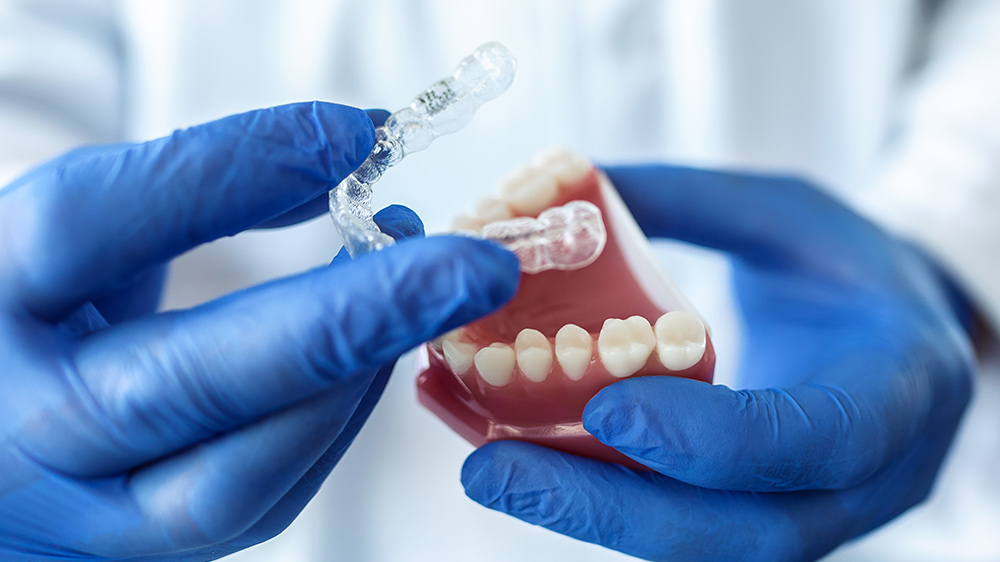
How are Invisalign aligners, invisible orthodontics, or clear aligners produced?
After the treatment plan is completed, a mold is taken from the patient’s maxilla and mandible. Then, the clear aligners are made using a precise treatment plan, 3D software, and a 3D scanner. The software then presents the orthodontist with the final treatment results.
Disadvantages of invisible orthodontics
Despite many beneficial advantages of invisible orthodontics, it also has the following problems.
- Since invisible orthodontics is removable, it needs patient cooperation, and the plaque is likely to be lost.
- Some severe teeth and jaw malformations cannot be corrected by this method.
- Invisible orthodontics is more expensive than other orthodontic methods.
Invisible orthodontic cost
The cost of invisible orthodontics is dependent on many factors such as the number of invisible plaques given to the patient, need for tooth extraction and jaw surgery, the type of problem (teeth or jaw) as well as dental inclination, jaw status, patient profile, tooth crowding, and radiographic status. Therefore, it is advised to schedule an appointment to determine the cost( the examination is free of charge).
